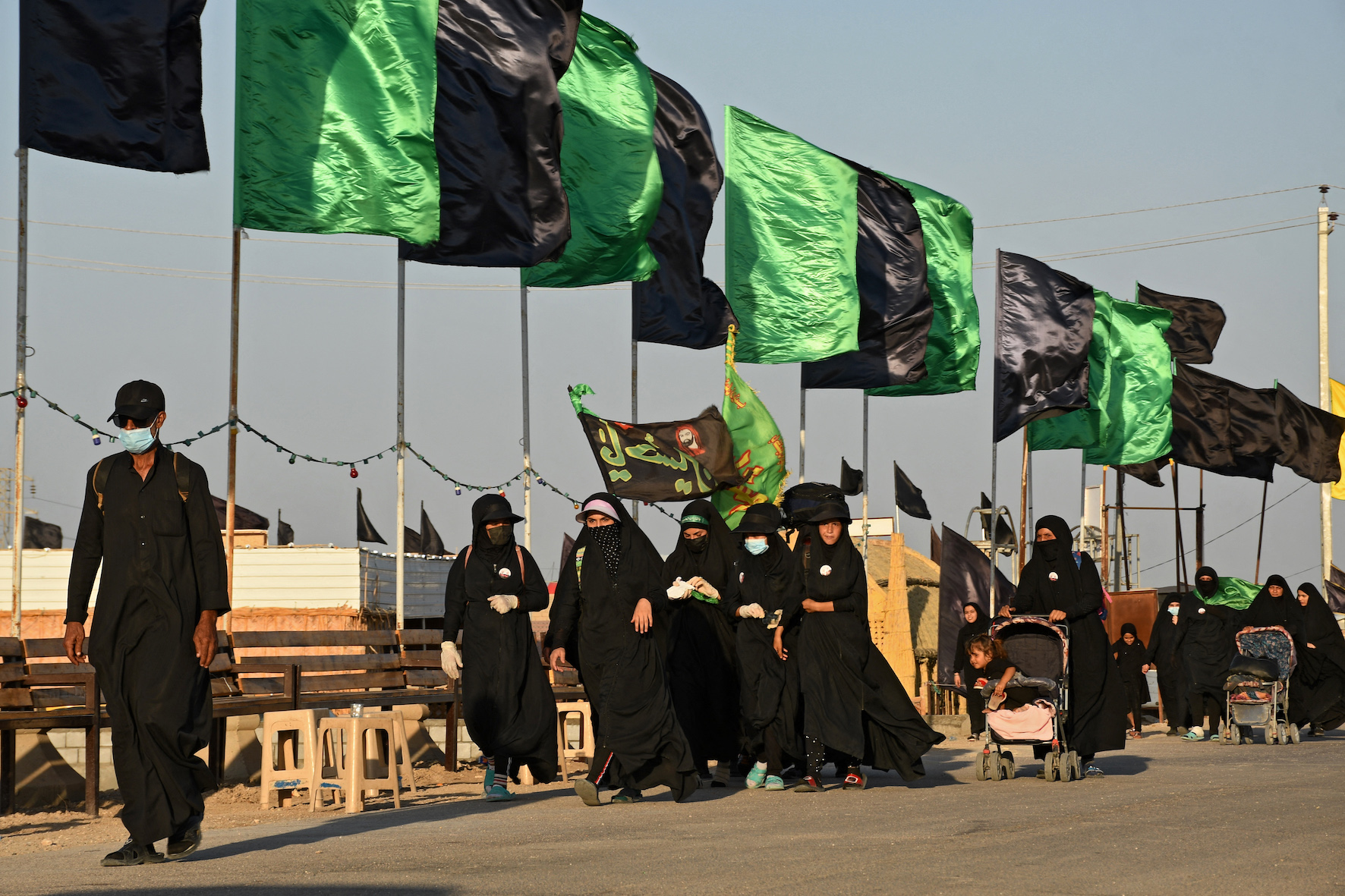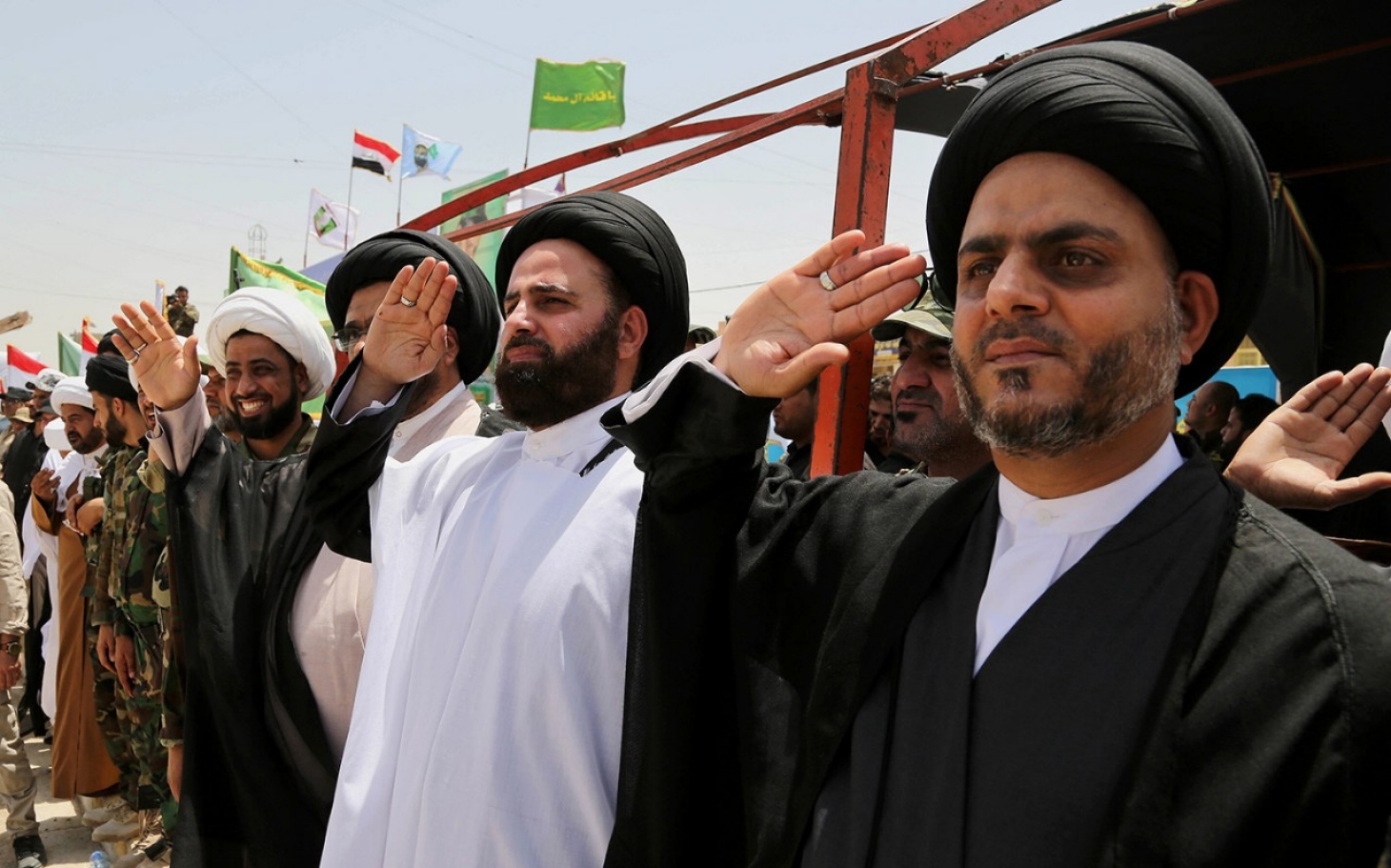Is Iraq Shia? Understanding A Nation's Identity
Many people often wonder about the religious makeup of countries in the Middle East, and a common question that comes up is, "Is Iraq Shia?" It’s a pretty important question, actually, because a country's religious demographics can tell us a lot about its culture, its history, and even its political life. Understanding this aspect helps us grasp the bigger picture of a nation.
To answer that question simply, yes, Iraq does have a majority Shia Muslim population. This fact is a key part of the country's identity and, you know, has shaped much of its story over time. It’s not just about numbers, though; it’s about how these different groups live together and contribute to the country's character, which is a really interesting thing to consider.
So, we'll explore this aspect of Iraq, looking at its religious communities and how its deep past and recent events have played a part in what it is today. We will also touch upon some general facts about Iraq, like its location in southwestern Asia, its capital city Baghdad, and its status as a parliamentary democracy with a population of more than 31 million people, as a matter of fact.
- Subhashree Sahu Mms Video.linkmaz
- Unraveling The Tragic Tale Of King Vons Dead Body.linkmaz
- Tom Sturridge Alexa Chung.linkmaz
- Jameliz Benitez.linkmaz
- Judy Warren.linkmaz
Table of Contents
- A Look at Iraq's Religious Landscape
- Iraq Through the Ages: A Rich Past
- Iraq's Modern Shape and Governance
- Recent Challenges and Human Rights
- Key Questions About Iraq's Identity
A Look at Iraq's Religious Landscape
When thinking about Iraq, a big part of its character comes from its people and their beliefs. It’s generally known that the majority of people living in Iraq follow the Shia branch of Islam. This makes Iraq one of the few countries where Shia Muslims form the larger group, which is a pretty distinct feature for the region, you know.
The Majority Faith
Yes, Iraq is indeed a country where the Shia Muslim community makes up the largest portion of the population. This has been a significant aspect of its social fabric for a very long time, actually. The presence of holy sites within Iraq holds deep meaning for Shia Muslims globally, drawing many visitors and giving the country a special place in their faith, in a way.
Other Communities in Iraq
While the Shia community is the biggest, Iraq is also home to other important religious and ethnic groups. There are Sunni Muslims, for instance, who also form a considerable part of the population. Christian communities, Yazidis, and other smaller groups have lived there for centuries too, adding to the country's rich blend of cultures and beliefs. This mix means Iraq is a country with many different voices and traditions, as a matter of fact.
- Priyanka Chopra A Global Icon And Her Connection To Deephotlink.linkmaz
- Exploring The World Of Hd Hub 4 U Movies South A Comprehensive Guide.linkmaz
- 5 Movie Rules 2025 The Future Of Filmmaking.linkmaz
- X Hamster The Ultimate Guide To Understanding And Caring For Your Furry Friend.linkmaz
- Xxx Diva Flawless The Ultimate Guide To Achieving Radiant Skin.linkmaz
Iraq Through the Ages: A Rich Past
Iraq's story stretches back an incredibly long way, making it one of the most historically significant places on our planet. The land itself has seen civilizations rise and fall for thousands of years, which is a truly remarkable thing to consider. It’s almost like a living museum of human progress, you know.
Mesopotamia's Enduring Legacy
During ancient times, the areas that now form Iraq were known as Mesopotamia. This name means "the land between the rivers," referring to the Tigris and Euphrates, and it’s a very famous place in human history. It was here, arguably, that some of the earliest cities and writing systems first appeared, laying foundations for much of what we know about early human societies. The influence of Mesopotamia, in some respects, is still felt today.
A Land of Ancient Settlements
It is perhaps the oldest consistently settled region on the planet, with signs of human homes dating back as far as 50,000 B.C. This means people have been living and building communities there for an unimaginably long time. You can find remnants of these early human settlements, which is a pretty amazing thought, really. It shows a deep connection to human beginnings, you know.
Iraq's Modern Shape and Governance
Moving from its ancient past to its present form, Iraq is a country located in Asia, specifically in its southwestern part. It shares its borders with several other nations, which is a key part of its regional position. These include Turkey, Iran, Jordan, Saudi Arabia, Syria, and Kuwait, so it’s pretty central to the Middle East, in a way.
A Nation in Southwest Asia
Iraq surrounds the Mesopotamian alluvial plain, which is a fertile area, and also includes parts of the Zagros mountain range and a section of the Syrian desert. This mix of terrain, from flat plains to mountains and desert, gives the country a varied physical look. Baghdad is the capital city, a bustling center that sits right in the heart of things, you know. A physical map of Iraq shows major cities, terrain, national parks, rivers, and surrounding countries with international borders and outline maps, which is very helpful for getting a sense of the place.
Governing a Diverse Populace
Iraq operates as a parliamentary democracy, a system where the people choose their representatives to make decisions. It’s a country with a population of more than 31 million people, which is quite a lot of individuals, you know. Iraq held parliamentary elections in March 2010 and has a coalition government, meaning different political groups work together to run the country. This system, arguably, tries to represent the various parts of its diverse society.
Recent Challenges and Human Rights
Iraq has faced some significant difficulties in recent times, which have impacted its people and its stability. These challenges, you know, have tested the country's ability to maintain peace and protect its citizens. It's been a rather tough period for many, to be honest.
Echoes of Conflict
The country experienced a major conflict, known as the Iraq War, which came to a close in 2011. Then, from 2013 to 2017, Iraq faced another very serious struggle with the rise and eventual defeat of the Islamic State. These periods of intense fighting had a profound effect on the nation and its people, leaving many lasting changes, as a matter of fact. It shows how much the country has endured.
Human Rights and Regional Differences
The human rights situation in Iraq, you know, has seen some difficulties. During one recent year, it worsened due to more restrictions from the federal government on basic freedoms and public space. This means people had less room to express themselves or gather freely. In the Iraqi Kurdistan region, the Kurdistan Regional Government did take some steps to try and improve things for human rights, but its restrictions on fundamental freedoms, apparently, continued at levels similar to before. This difference between regions is something to consider, too it's almost.
Key Questions About Iraq's Identity
People often have specific questions when they are trying to grasp the basics of a country like Iraq. These questions help clear up common misunderstandings and provide a clearer picture of its character. So, let’s look at some of those, okay?
What is the dominant religion in Iraq?
The dominant religion in Iraq is Islam, with the Shia branch being the most widely followed. This means that a majority of the people in Iraq identify as Shia Muslims. There are also many Sunni Muslims, and smaller groups of other faiths, too. This religious composition is a key feature of the country, you know, and helps shape its social and political life, arguably.
How has history shaped Iraq's religious composition?
Iraq's long history, dating back to ancient Mesopotamia, has played a very significant part in its current religious makeup. While the provided text doesn't detail the historical spread of different Islamic branches, the region has been a crossroads of cultures and empires for thousands of years. This long history, in some respects, has allowed different religious traditions to take root and grow over centuries, contributing to the diverse, yet Shia-majority, nation we see today, as a matter of fact. You can visit the definitions and notes page to view a description of each topic for more general information.
Are there other major religious groups in Iraq?
Yes, absolutely. While Shia Islam is the majority faith, Iraq is home to a number of other important religious groups. Sunni Muslims make up a very large minority. There are also ancient Christian communities, like the Chaldean Catholics and Assyrians, who have lived in the region for a very long time. Other groups, like the Yazidis and Mandaeans, also have a presence, adding to the rich religious blend of the country. This mix of beliefs is, you know, a pretty important part of Iraq's unique identity. For more general facts about nations, you could visit a reputable information source, for instance.
Learn more about Iraq's ancient history on our site, and perhaps explore other Middle Eastern countries.
- Discover The Allure Of Diva Flawless Nude A Comprehensive Guide.linkmaz
- Honeytoon Free Comics.linkmaz
- Kid And Mom Cctv A Comprehensive Guide To Ensuring Family Safety.linkmaz
- What Did Philip Mckeon Died Of Cancer.linkmaz
- Jayshree Gaikwad Hot Web Series.linkmaz

What is Arbaeen and how do Shia Muslims mark it? | Middle East Eye

Explainer: Shia-Sunni divide and Iraq’s deadly sectarian war | CFEE Classroom Edition

Top Shia cleric calls for new Iraqi government | Al Jazeera America